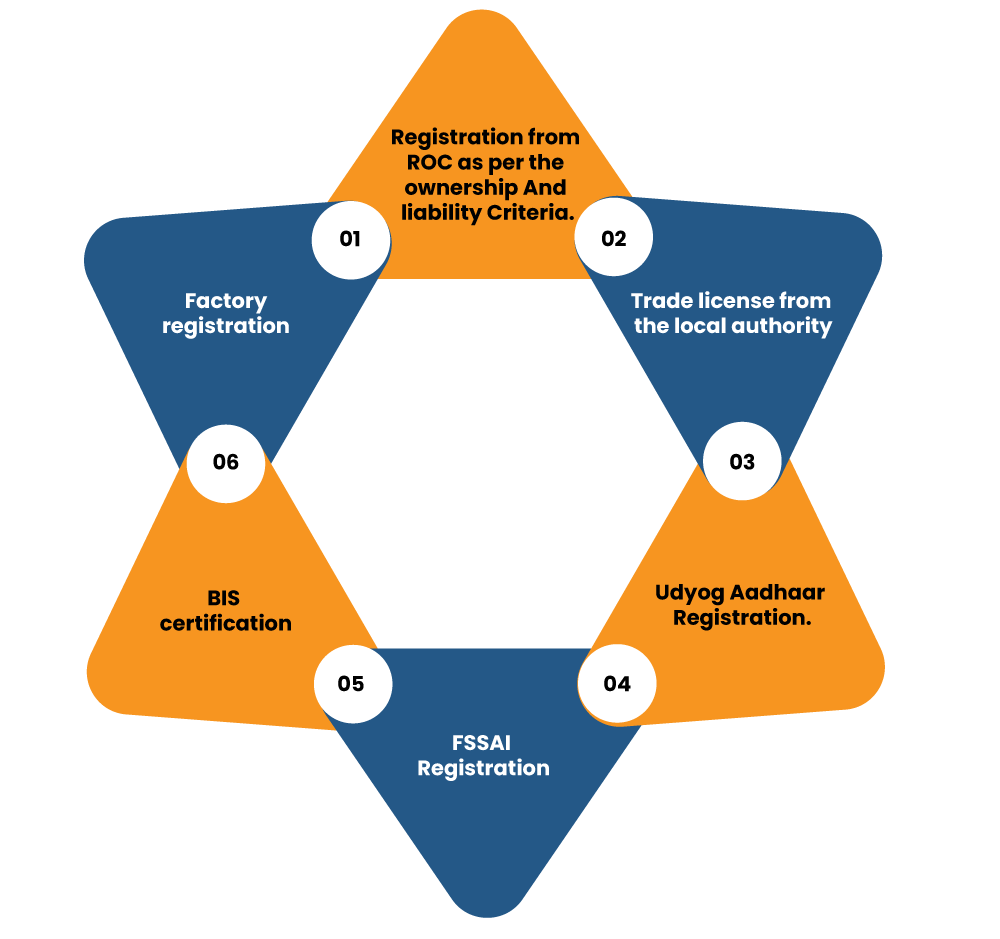Coconut is a profitable cropthat is aggressively grown in more than 90 nations of the world. India is one the leading global producers of coconut, producing 13 billion nuts/annum. Every Coconut oil manufacturers in India need to comply with certain obligations to carry out their operation seamlessly. Obtaining FSSAI registration is one such requisite for these entities. In the blog, we will reveal some imperative points regarding the FSSAI registration for Coconut oil manufacturers.
An overview on Coconut plantation and Coconut oil production in India
Coconut is predominately planted incoastal areas such as Assam, AP, Kerala, Goa, Orissa, Maharashtra, Tripura, Tamil Nadu, West Bengal, Lakshadweep, Andaman, and the Nicobar Islands, and Pondicherry[1]. Despite the tedious plantation, coconut still considers the most valuable crop in India. This will lay down the growth foundation for the coconut oil manufacturing business.
In Indian culture, coconuts adhere to a significant position in terms of religious sentiment. At present, our nation holds the third position in the list of leading coconut producers in the world. Theproduction of coconut in India is almost 9.5 lakh metric tonnes, spanning over 1.78 million hectares of cultivated land. Kerala is the leading coconut product state in India which is accounted for 45% of the nation’s total production.
Lately, theIndian markets have witnessed a significant surge in coconut demand. Organic virgin coconut oil, in particular, has managed to register massive demand from the USA and European nations. Last year our country has managed to export nearly 500 tonnes of coconut while current year this figure might end up two-fold. The raw coconuts and coconut virgin oilreceive consistent demand throughout the years which further boost the coconut oil manufacturing business. Last year our country reaps around Rs 200 crores against the sale of raw coconuts.
Read our article:FSSAI Guidelines on Fortification of Edible Oil with Vitamin A, D
Listicle of licenses for Coconut Oil Manufacturers


FSSAI registration for Coconut oil manufacturers
According to the Food Safety and Standards Authority of India, no food business operator is allowed to carry out their business operation without an FSSAI registration. The FSS Act, 2006 has specified this condition for all FBOs involved in the supply chain of food. Apart from manufacturers, the said act covers distributors, packagers, and marketers as well.
Here are some key points that let you understand the applicability of FSSAI registration
- FSSAI registration and licensing process is governed by the Food Safety and Standards Authority of India, aka FSSAI.
- The Food Safety and Standard Act, 2006 promotes food safety and compels FBOs to adhere to food safety norms mentioned therein.
- The registration fees of FSSAI registrationvary from Rs 100 to Rs 7500.
- The FSSAI has classified the licensing protocol under 3-teir systems i.e. Basic registration, State registration, and Central Registration.
- Basis registration mainly covers petty manufacturers and small shop owners. Meanwhile, the rest encompasses bigger establishments such as hotels, canteens, restaurants, etc.
- Scope of operation, Annual Turnover, and production capacity are the major grounds for the issuance of an FSSAI license.
- To simplify the application filing process, FSSAI in association with GOI has introduced the online portal, viz FosCoS.
Documents to be arranged by Coconut oil manufacturers for obtaining the Central License
- Form B duly filled and signed by the applicant
- Plant schematics of the production facilityreflecting all the key areas.
- List regarding the partners/directors/ proprietor with legitimate address, photo & details.
- Detailed information regarding machines present at the production facility and installed capacity
- List of food categories (like coconut oil in this case) being processed or produced at the production facility.
- Authority letter reflecting responsible person’s details including name and address
- Analysis of water report issued by the concerned authority.
- Source from where the raw material is procured.
- Certificate of Ministry of Commerce.
- IEC certificate in case ofimportation and exportation of edible items.
- Form IX
- Certificate issued by the Ministry of Tourism
- Proof reflecting the possession of premises.
- Partnership deed or proprietorship’s affidavit.
- NOC as well as the License copy of the manufacturer.
- NOC from the local body
- Food safety management system plan, aka FSMS plan
- Supporting document indicating turnover figures & transportation
- Declaration form
Documents required For FSSAI State License
- Form B duly filled and signed by the applicant
- Plant schematics of the production facilityreflecting all the key areas.
- List regarding the partners/directors/ proprietor with legitimate address, photo & details.
- Detailed information regarding machines present at the production facility and installed capacity
- List of food categories (like coconut oil in this case) being processed or produced at the production facility.
- Authority letter reflecting responsible person’s details including name and address
- Analysis of water report issued by the concerned authority.
- Source from where the raw material is procured.
- Certificate issued by the Ministry of Commerce.
- Certificate’s copyaccorded under Coop Act 1861/Multistate Coop Act 2002
- Food safety management system plan or certificate
Albeit getting an FSSAI license seems like a burden inthe first place, but it is the only way to stay in compliance with underlying norms regarding food safety. Consistent and prolong commitment toward FSSAI’s norms can help FBOs to build goodwill and promote growth.
Conclusion
FSSAI license for Coconut oil manufacturers is an absolute mandate in India. If they opt to go against this requirement then penalties would be levied accordingly as per FSS Act, 2006. Therefore, it is advisable to maintain harmony with FSSAI norms no matter how adverse the conditions are. The interested applicants can hop onto CorpBiz’s helpdesk and get the best possible assistance regarding the application process.
If you are someone who is more prone to mistake then go ahead and avail the services from the CorpBiz’s helpdesk. Our experts will help you prevent making mistakes during documentation and filing procedure.
Read our article:Guidelines of FSSAI to Stock Mustard Oil without Mixing other Oil











